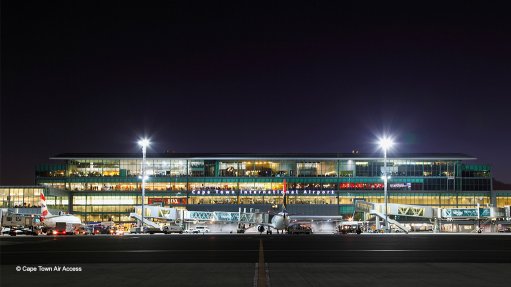GATT – 74 not out
October 30 was the seventy-fourth anniversary of the General Agreement on Tariffs and Trade (GATT), the predecessor (but not in the truest sense of the word) of the World Trade Organisation (WTO).
If you have an academic interest in the differences between GATT and the WTO, these – a total of ten – are clearly spelt out in an article by Lakshay Anand.
Firstly, GATT was ad hoc and provisional, while the WTO and its agreements are permanent, with it having a sound legal basis because its members have ratified the agreements. Secondly, GATT was an international multilateral treaty to promote international trade and remove cross-country trade barriers, while the WTO is a global body that superseded GATT and deals with the rules of international trade between member nations. Thirdly, whereas GATT was a simple agreement with a small secretariat and no institutional existence, the WTO is a permanent institution with a secretariat. Fourthly, GATT called participating nations contracting parties, whereas the WTO calls them members. Fifthly, the ‘grandfather’ clause in the Protocol of Provisional Application in GATT 1947 was not carried forward to the WTO, with the WTO containing an improved version of the original GATT rules, namely the GATT 1994 rules. Further, while the GATT commitments were provisional, with contracting parties having a choice to treat them as a permanent commitment or not, the WTO commitments are permanent. Another difference is that the scope of the WTO is wider than that of GATT, in that the GATT rules were applied to trade in goods only, whereas the WTO rules are applicable to goods, services and aspects of intellectual property. In addition, the GATT agreement was primarily multilateral, although a plurilateral agreement was added later, while WTO agreements are purely multilateral. Yet another difference is that, under GATT, domestic legislation was allowed to continue, but this is not the case under the WTO. Finally, the GATT dispute settlement system was slower, less automatic and susceptible to blockages, while the WTO dispute settlement system is highly effective.
From October 30, 1947, to December 31, 1994 – a period that saw some of the highest growth rates in international commerce – GATT provided the rules aimed at initiating international trade, through liberalising policies and removing tariffs. The WTO was launched on January 1, 1995, as a global organisation that encourages and facilitates inter-country trade and helps to resolve trade disputes. It was designed to provide a common institutional framework for the conduct of trade relations among its members. The WTO’s creation, as a result of the Uruguay Round, marked the biggest reform of international trade since the end of World War II.
What might not be that obvious is that the WTO, along with the World Bank and the International Monetary Fund (IMF), constituted what was envisaged as the Bretton Woods trilogy. In case you need reminding, Bretton Woods is the name of not only a place but also a system. Bretton Woods the place boasts the Mount Washington Hotel, in the White Mountains of New Hampshire, whereas Bretton Woods the system is the set of financial rules drafted during an international conference held at the hotel in July 1944.
As a reminder, World War II started on September 1, 1939, and ended on September 2, 1945.
When the Bretton Woods Conference was convened, the intention was to establish the World Bank (its official name is the International Bank for Reconstruction and Development), the IMF and the International Trade Organisation (ITO). While the World Bank was established on December 27, 1945, and the IMF on March 1, 1947, the negotiation around the ITO collapsed. Then, very much as a compromise, negotiations started in April 1947, resulting in the establishment of the IMF on October 30, 1947.
GATT continues to live in the WTO through the GATT agreements.
Article Enquiry
Email Article
Save Article
Feedback
To advertise email advertising@creamermedia.co.za or click here
Announcements
What's On
Subscribe to improve your user experience...
Option 1 (equivalent of R125 a month):
Receive a weekly copy of Creamer Media's Engineering News & Mining Weekly magazine
(print copy for those in South Africa and e-magazine for those outside of South Africa)
Receive daily email newsletters
Access to full search results
Access archive of magazine back copies
Access to Projects in Progress
Access to ONE Research Report of your choice in PDF format
Option 2 (equivalent of R375 a month):
All benefits from Option 1
PLUS
Access to Creamer Media's Research Channel Africa for ALL Research Reports, in PDF format, on various industrial and mining sectors
including Electricity; Water; Energy Transition; Hydrogen; Roads, Rail and Ports; Coal; Gold; Platinum; Battery Metals; etc.
Already a subscriber?
Forgotten your password?
Receive weekly copy of Creamer Media's Engineering News & Mining Weekly magazine (print copy for those in South Africa and e-magazine for those outside of South Africa)
➕
Recieve daily email newsletters
➕
Access to full search results
➕
Access archive of magazine back copies
➕
Access to Projects in Progress
➕
Access to ONE Research Report of your choice in PDF format
RESEARCH CHANNEL AFRICA
R4500 (equivalent of R375 a month)
SUBSCRIBEAll benefits from Option 1
➕
Access to Creamer Media's Research Channel Africa for ALL Research Reports on various industrial and mining sectors, in PDF format, including on:
Electricity
➕
Water
➕
Energy Transition
➕
Hydrogen
➕
Roads, Rail and Ports
➕
Coal
➕
Gold
➕
Platinum
➕
Battery Metals
➕
etc.
Receive all benefits from Option 1 or Option 2 delivered to numerous people at your company
➕
Multiple User names and Passwords for simultaneous log-ins
➕
Intranet integration access to all in your organisation
















